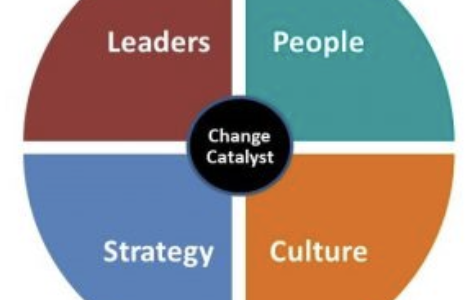from The Catalyst, Jonah Berger, 2020
The Catalyst changes minds (triggers reactions) by removing (5) barriers :
1- Reducing reactance (reactance = resistance to persuasion by pushing back, arguing, avoiding, ignoring). To take action, we need to feel that we are free and autonomous and that we are doing what we choose. When given facts and asked what we are going to do about it, we chart our own path and become active participants, provided with a menu of choices, feeling aligned with our own values (internal consistency), highlighted gaps and guided by tactical empathy (active listening and trust building).
2- Easing endowment (endowment = attachment to status quo). Inaction is easy, it results from the comfort bias. To let go, we need to explore the cost of doing nothing. We also need to burn the existing option (which gives no choice but to consider new options).
3- Shrinking distance (distance to change). What I can accept before rejection, what I can live with. This is done by focusing on specific issues where we are likely to shift, by asking for less (one step at a time), and starting with a common ground (confirmation bias).
4- Alleviating uncertainty. When choosing between a sure thing and a risky one, the risky option has to be that much better to get chosen. Change involves uncertainty, and there is nothing we like less. Make it easy to try, use and find useful, reducing risk, thus reducing uncertainty : (a) make something free and find out how useful it is, then willing to charge for extra services (b) reduce upfront costs (c) hand out a free sample (d) make it reversible, a free return cost, loosing nothing in the worst case scenario.
5- Finding corroborating evidence (= compelling information, proof, evidence). Proof brought by a close friend has a certain impact on our opinions, proof brought by a concentration of friends, multiple sources will have even more impact, thanks to social reinforcement. The evidence needs to come from people like us, or better : someone like us who has already gone through the change. The stronger the denial, the more concentrated evidence is needed.

